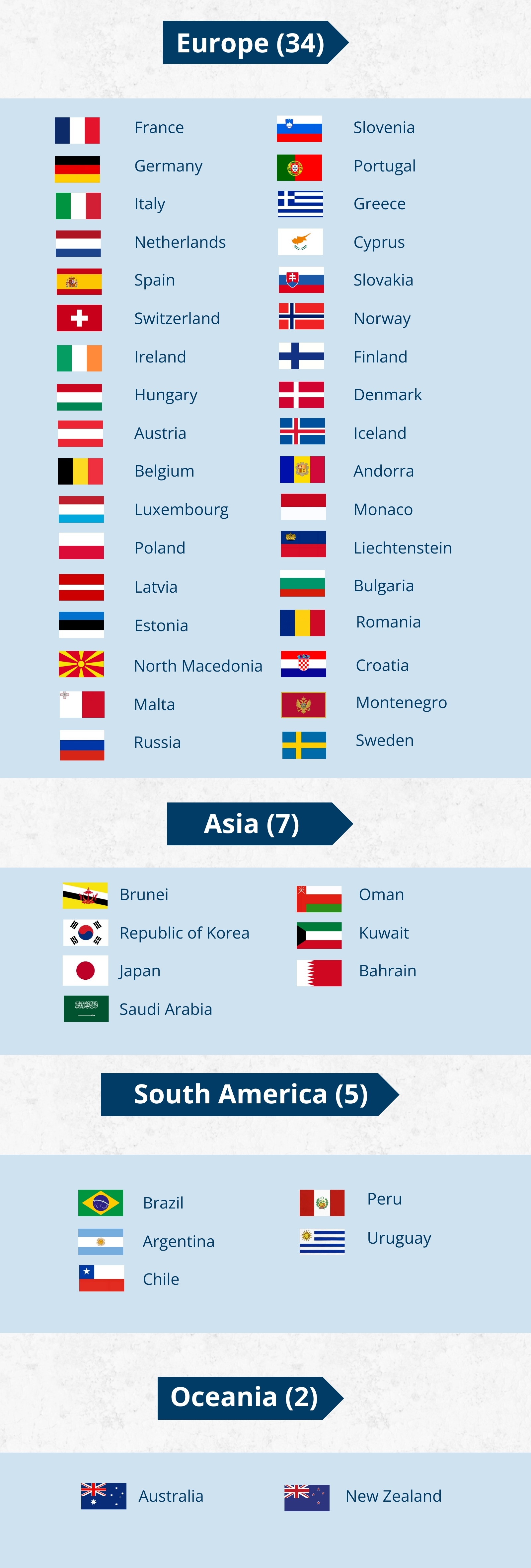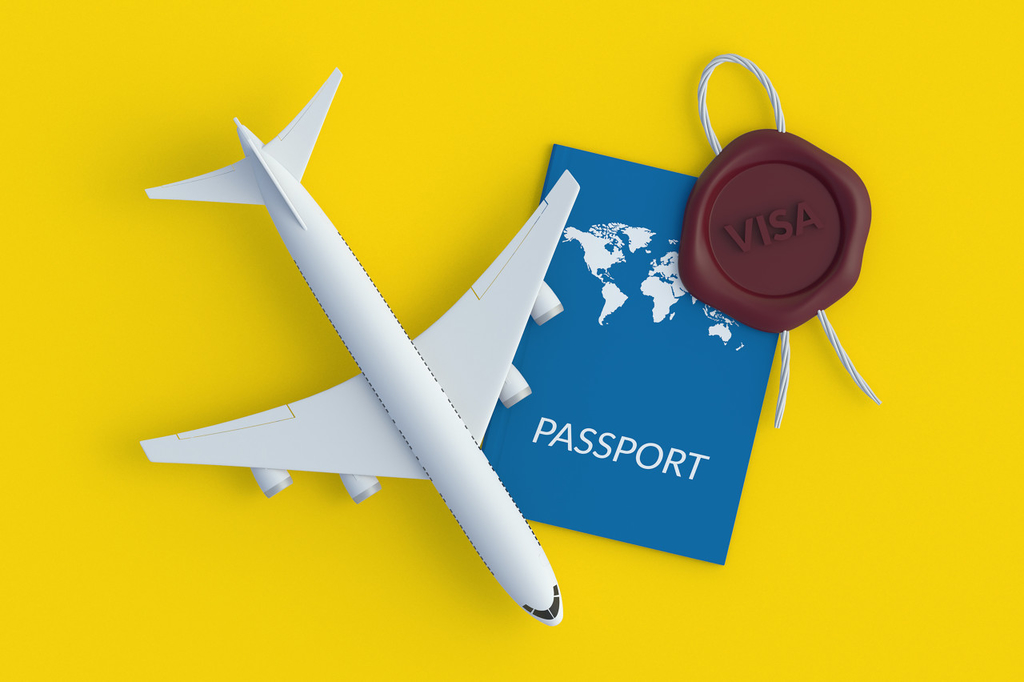Visa-free travel to China: Things you need to know
China has been opening its doors wider to international travelers. So far, the country has expanded its unilateral visa-free policy to cover 48 countries. Ordinary passport holders from these countries can enter China without a visa and stay for up to 30 days for the purpose of business, tourism, exchange, transit, or visiting family or friends.
Here is a list of the unilateral visa-free countries:

Below are some frequently asked questions about China's visa-free policies.
Q: Do I need to make declarations to Chinese embassies and consulates in advance?
A: Foreign nationals eligible for a visa waiver do not need to declare in advance to Chinese embassies and consulates before entering China without a visa.
Q: Will the purpose of intended stay in China be examined by Chinese border inspection authorities upon entering China? How will it be done? Are other documents needed for entering China in addition to a passport?
A: Foreign nationals traveling for purposes of business, tourism, exchange, transit, or visiting family or friends that meet the visa waiver requirements are allowed to enter China without a visa upon examination and approval in accordance with the law by border inspection authorities.
Entry into China shall be denied by border inspection authorities in accordance with the law to foreign nationals who travel for purposes that do not meet the visa waiver requirements or who are not allowed to enter China in accordance with laws and regulations.
It is advisable to take documents such as invitation letters, air tickets and reservations of accommodation as proof of the purpose of your entry into China. The visa waiver does not apply to those who come to China for work, study, journalistic or other purposes.
Q: How long will the visa waiver be effective?
| Brunei | No expiration date |
| Russia | Effective until Sept 14, 2026 |
| Other 46 countries | Effective until Dec 31, 2026 |
Q: Is there any additional requirement for minors?
A: Visa waiver requirements for minors are the same as for adults.
Q: Are there any requirements for the type and validity of entry documents?
A: For foreign nationals, an ordinary passport valid for at least the duration of the intended stay in China is needed. Holders of travel documents or temporary or emergency documents other than ordinary passports are not allowed to enter into China without a visa.
Q: How to calculate the 30-day stay?
A: The duration of stay without a visa is calculated from the next day of entry and lasts continuously for 30 calendar days.
Q: Can I travel from a third country?
A: You can depart for China from any country or region.

Q: What if I travel by means other than air?
A: The visa waiver applies to all travelers coming to China through any air, sea, or land port open to foreign nationals (except where laws, regulations and bilateral arrangements specify otherwise). For arrivals to China by private transport, certain procedures for entry and exit of means of transport shall be processed in accordance with the relevant laws and regulations of China.
Q: Does the visa waiver apply to tour groups?
A: The visa waiver applies to eligible foreign nationals either in tour groups or as individuals.
Q: If I stay longer than 30 days, can the visa waiver be extended?
A: Foreign nationals planning to stay in China for over 30 days shall apply for visas corresponding to their purposes of stay in advance at Chinese embassies or consulates. If they have to stay longer than 30 days for appropriate and sufficient reasons after entering China without a visa, they shall apply for stay permits to the exit and entry administrations of the public security authorities of China.
Q: Does the visa waiver allow multiple entries? Is there any requirement on the length of intervals between each entry, or any restriction on the number of entries without a visa or total days of stay?
A: Foreign nationals eligible for the visa waiver can enter China without a visa multiple times. There is currently no restriction on the number of entries or total days of stay, but those who enjoy visa-free travel to China shall not engage in activities inconsistent with their purposes of entry.
Q: Does the visa-free entry policy apply to travel for the purpose of sports competitions, conferences and exhibitions, and study tours (summer/winter camps)?
A: Visa waiver applies to those who come to China for the purpose of sports competitions, conferences and exhibitions, and study tours (summer/winter camps), and stay in China for no more than 30 days. However, a valid ordinary passport is needed.
Q: If I entered China on a visa waiver and then lost my passport, which was verified and stamped by a Chinese border inspection authority, can I leave China using an emergency travel document issued by the relevant foreign embassy or consulate in China?
A: For a foreign national who has entered China without a visa and needs to exit using a new passport, emergency passport or travel document due to loss or damage to the original identity document, the Chinese border inspection authority in charge will verify in line with the law the foreign national's identity, entry record or loss report, and supporting documents issued by the relevant foreign embassy or consulate in China. If these documents are confirmed to be valid and the individual concerned has not overstayed, or committed any other illegal acts, he/she may be allowed to exit according to the law.
If the individual has overstayed, or committed other illegal acts under the jurisdiction of the Chinese border inspection authority, the authority will handle the case according to laws and regulations.
For other violations beyond the jurisdiction of the border inspection authorities, the individual must first be processed by the exit-entry administration department of a public security organ or other relevant competent authorities. Thereafter, they may proceed to exit through the border inspection authority by presenting the relevant proof of resolution.
| For inquiries regarding China's entry and exit policies, call +86-21-12367. |
Updated Nov 11, 2025
Source: Ministry of Foreign Affairs' Department of Consular Affairs